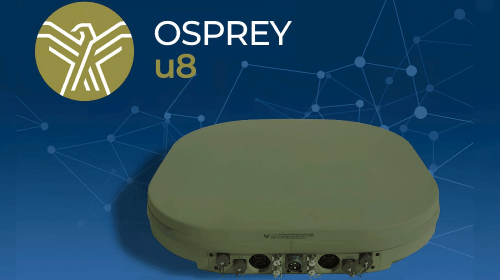Foxconn Leap to the Stars Aboard Falcon 9 Rocket
Dec 05, 2023
Electronics manufacturing giant Foxconn, also known as Hon Hai Precision Industry Co, reached a new milestone on November 12, with the launch of its first two prototype satellites into low Earth orbit. The small satellites lifted off at 4:49 pm local time aboard a SpaceX Falcon 9 rocket on the Transporter-9 mission from California’s Vandenberg Space Force Base, marking Foxconn’s inaugural step into the space arena.
 A Foxconn factory in Shenzhen, China. Credit: Foxconn
A Foxconn factory in Shenzhen, China. Credit: Foxconn
The two backpack-sized satellites, dubbed Pearl-1H and Pearl-1C, are aimed at demonstrating technologies for low Earth orbit communications and 5G services. Weighing about 9 kg each, they were developed in partnership with Taiwan’s National Central University and feature cameras, communications equipment, and other key systems. Their design enables an orbital period of about 96 minutes at an altitude of 520 km.
According to Jen-Ming Wu of Foxconn’s Hon Hai Research Institute, the launch signifies a proof of concept for the company’s burgeoning efforts around satellites and space-based connectivity. It aligns with chairman Liu Young-way’s strategy since 2019 to diversify Foxconn into areas like electric vehicles, healthcare, robotics, and more.
The prototype satellites could pave the way for specialized broadband services tailored to corporate and government users. They also have implications for connectivity infrastructure to support Foxconn initiatives like its smart electric vehicle platform, which utilizes autonomous driving capabilities needing real-time data.
More broadly, the launch highlights how the Taiwanese manufacturing titan is expanding into new high-tech sectors amidst maturing demand for some of its traditional products like smartphones and laptops. The space industry operates on longer cycles than the fast-paced consumer electronics that Foxconn is known for fueling. But corporate and institutional orders could lend stability amidst unpredictability as its satellite business develops.
Foxconn’s deep manufacturing expertise and resources position it well to drive innovation in satellites. The demand outlook is also promising – Taiwan’s government is exploring space-based communications to complement the undersea cables currently supplying the island’s internet. By providing space-based infrastructure as an alternative to maritime cables, Foxconn’s new venture could fulfill a vital role as Taiwan pursues satellite-enabled redundancy for its internet needs. Early government and military satellite contracts could lend viability to Foxconn’s offerings as national space-based networks are designed.
The successful launch of the prototype satellites bodes well for Foxconn’s budding space ambitions. As it works to build out capabilities and deliver operational satellite networks, Foxconn can leverage vertical integration strengths while exploring a new dimension for its electronics beyond Earth’s surface.
Foxconn, also known as Hon Hai Precision Industry Co, was founded in 1974 by Taiwanese businessman Terry Gou. Headquartered in Taiwan, Foxconn is one of the largest electronics manufacturers globally. Foxconn operates factories in several Asian countries including China where the majority of its over one million employees are based. The company is best known as the leading assembler of Apple’s iPhone and other popular consumer electronics produced by companies like Sony, Xiaomi, Nokia, Nintendo, and more. Due to its massive size and capacity, Foxconn plays a key role in the global technology supply chain. Originally a maker of plastic parts, Foxconn has grown over the past five decades into a high-tech powerhouse driving device assembly and innovation.





